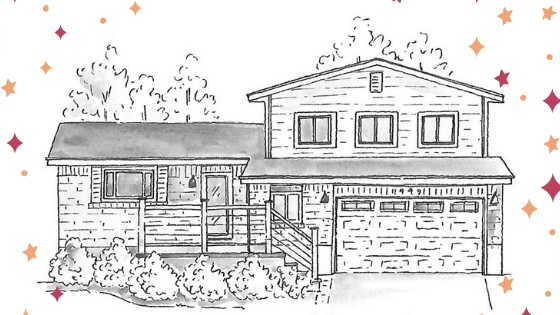As a REALTOR®, I help my buyers ensure they are taking the appropriate measures to validate that the home they are buying is safe for their family. Typically this involves an inspection by a certified inspector during the transaction period. As standard practice, the inspector will do a whole-home inspection, but there are often optional add-ons to test for items that can cause serious health concerns. Being aware of a few key items that can be of concern is important so you can ask the right questions to the inspector, request the right tests, and be knowledgeable moving forward living in your home.
Here are three important items to be made aware of:
#1 ~ Lead
Homes built before 1978 have a high likelihood of containing lead-based paint. Lead can be dangerous if not managed properly and disturbing surfaces with lead-based paint or removing lead-based paint improperly can increase the danger to your family. If you are buying, renting, or renovating a home built before 1978 and have children under the age of 6, you may want to have it checked for lead-based paint. Lead is especially dangerous to children under the age of 6 because their brains and nervous systems are more sensitive to the damaging effects of lead. However, be aware that lead-based paint is usually not a hazard if it is in good condition and if it is not on an impact or friction surface like a window. Always keep painted surfaces in good condition to minimize deterioration.
Visit here for more info on lead.
#2 ~ Asbestos
Asbestos is a naturally occurring mineral substance whose fibers were mixed into many products, including building materials. In the 70s and 80s, reports started to emerge that inhaling the small fibers of asbestos could cause health complications including lung cancer. Since then, the US government has restricted the use of asbestos, but that still leaves us with many homes that were built with materials containing asbestos. The top 5 products that you can find asbestos in are:
- Popcorn ceilings
- Asbestos ceiling tiles popular between 1950s – 1980s, often found in kitchen ceilings or remodeled basement areas
- Vinyl floor tiles – the most commonly produced vinyl tile product containing asbestos was the 9×9 inch tile that was sealed to floors with adhesive.
- Heating duct pipe wrapping – asbestos insulation was widely used on heating pipes and sometimes on water pipes.
- Vermiculite – a popular attic insulation material used in houses built from 1900-1940s
Be aware that asbestos is not considered harmful unless it is damaged or disturbed in some way, which could release the dangerous fibers into the air. As the EPA states: “Asbestos-containing materials that aren’t damaged or disturbed are not likely to pose a health risk. Usually, the best thing is to leave asbestos-containing material alone if it is in good condition.”
Visit here for more info on asbestos.
#3 ~ Radon
Radon is toxic gas that is derived from naturally decaying uranium in the soil. Uranium is naturally found in our soils all across the nation, and is especially prevalent in Colorado. Uranium can be found below homes both new or old and as it decays, it releases radon gas. The radon gas rises to the surface and can rise through gaps and cracks in a homes foundation or walls. It is odorless, colorless, and tasteless and can only be detected with radon testing equipment. It is considered to be carcinogenic by the World Health Organization (WHO) and a leading cause of lung cancer.
The Environmental Protection Agency sets radon safety levels at 4.0 pCi/L (pico-curies-per-liter) and if a home is found to have radon levels at or above this, it is advised to do radon mitigation. Since radon can be found below homes both new or old, it would be a wise safety measure to always do a radon test within the inspection period.
Visit here for more info on radon.
If an inspector does uncover any of these items during the inspection period, you can speak with your realtor about options on how to move forward. Most important is that you are aware of the concerns and can make a smart decision on how you want to move forward.
**********
If you need assistance from a REALTOR® to help in your Boulder-Denver area home search, I would love to help!! Please reach out via email at bgoltz@wkre.com or through the contact info below.





